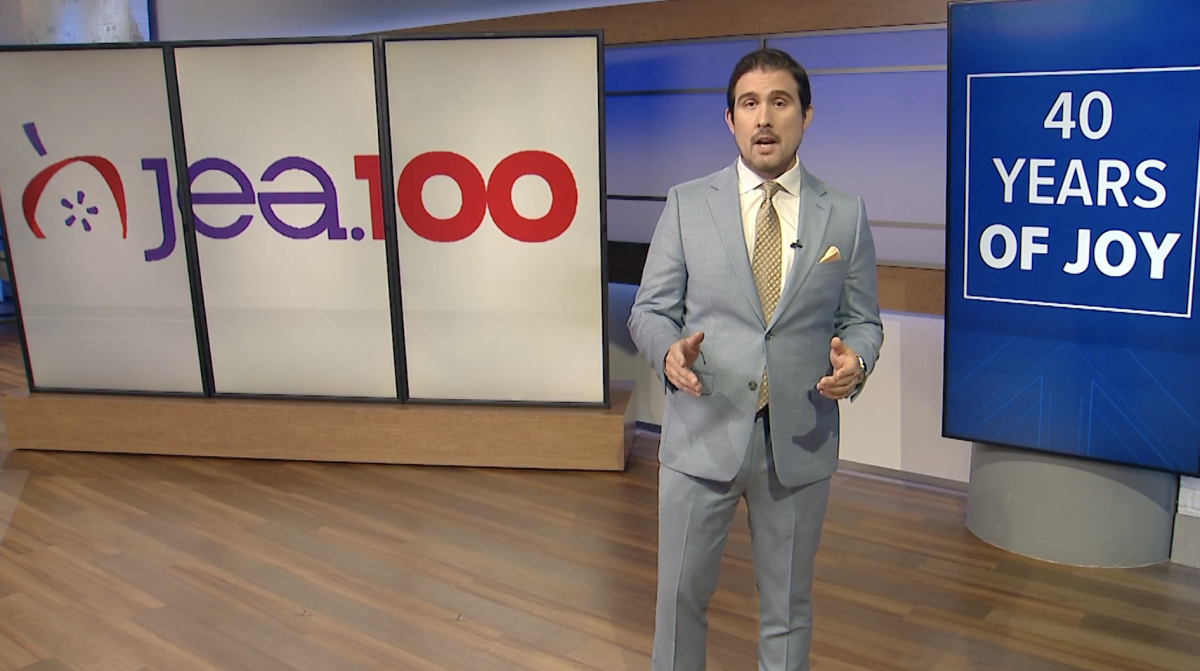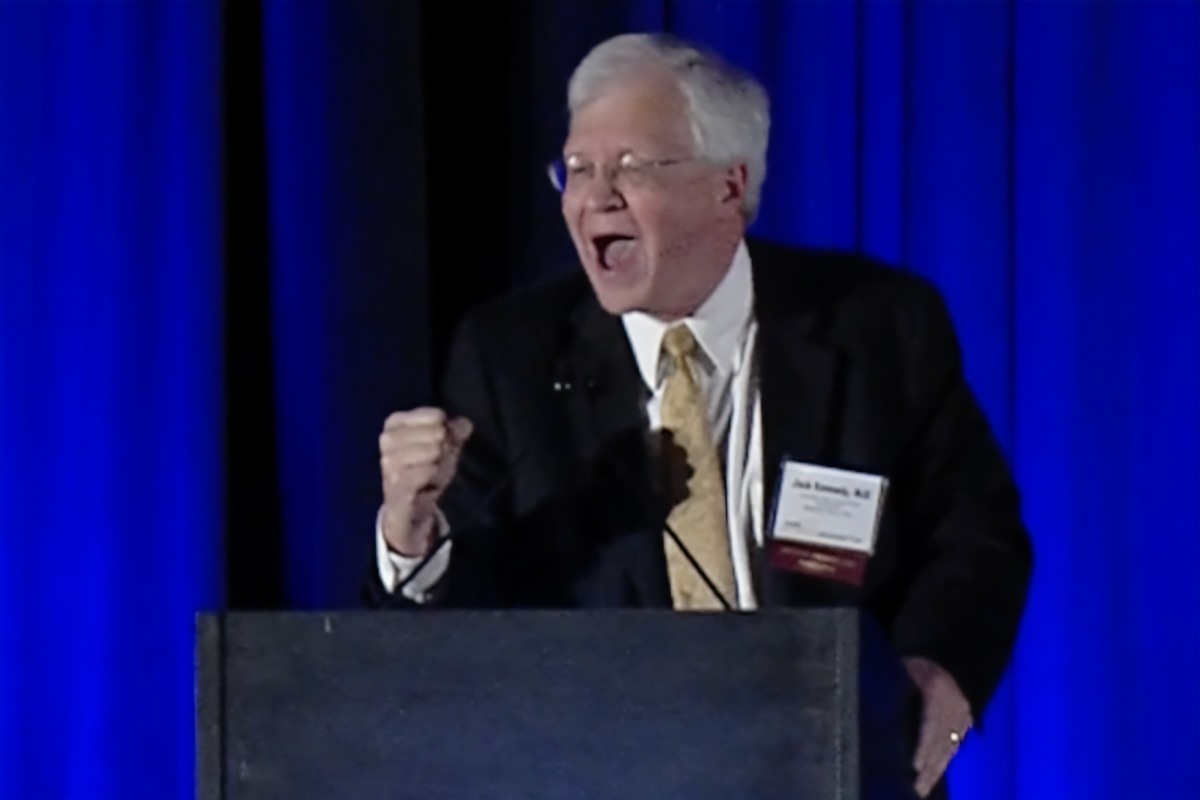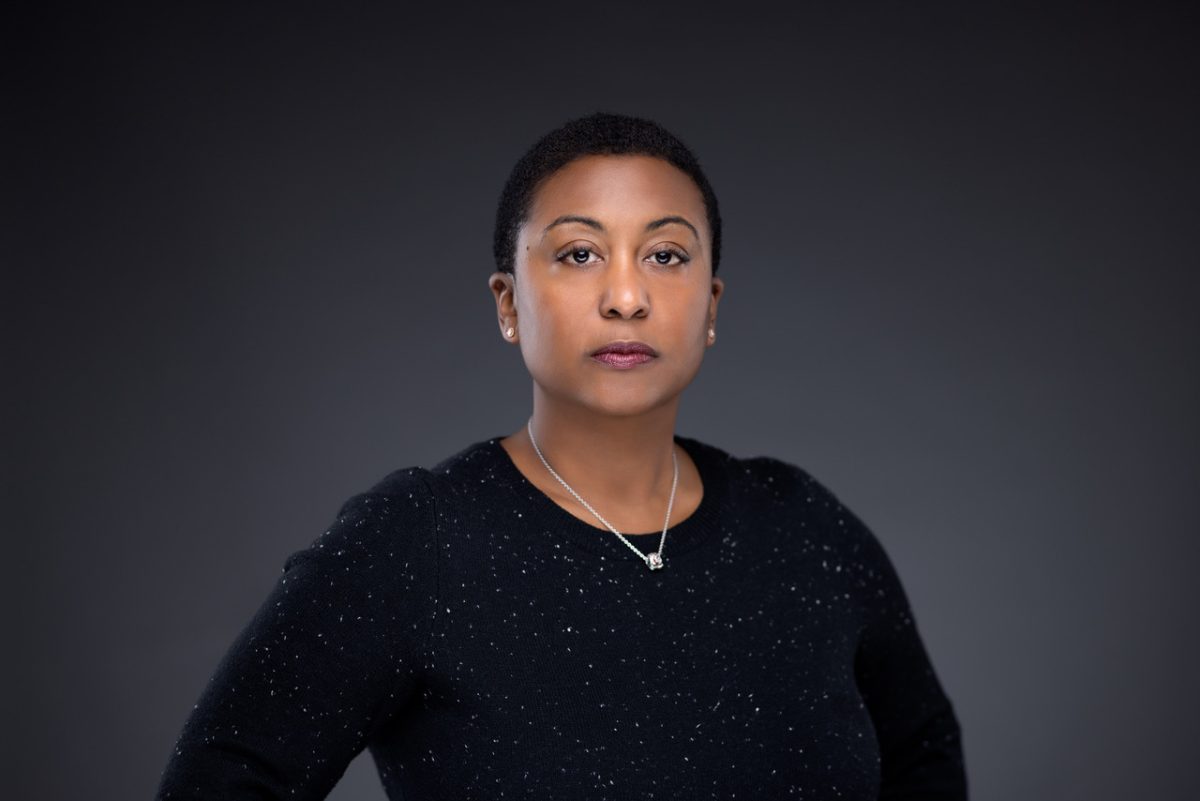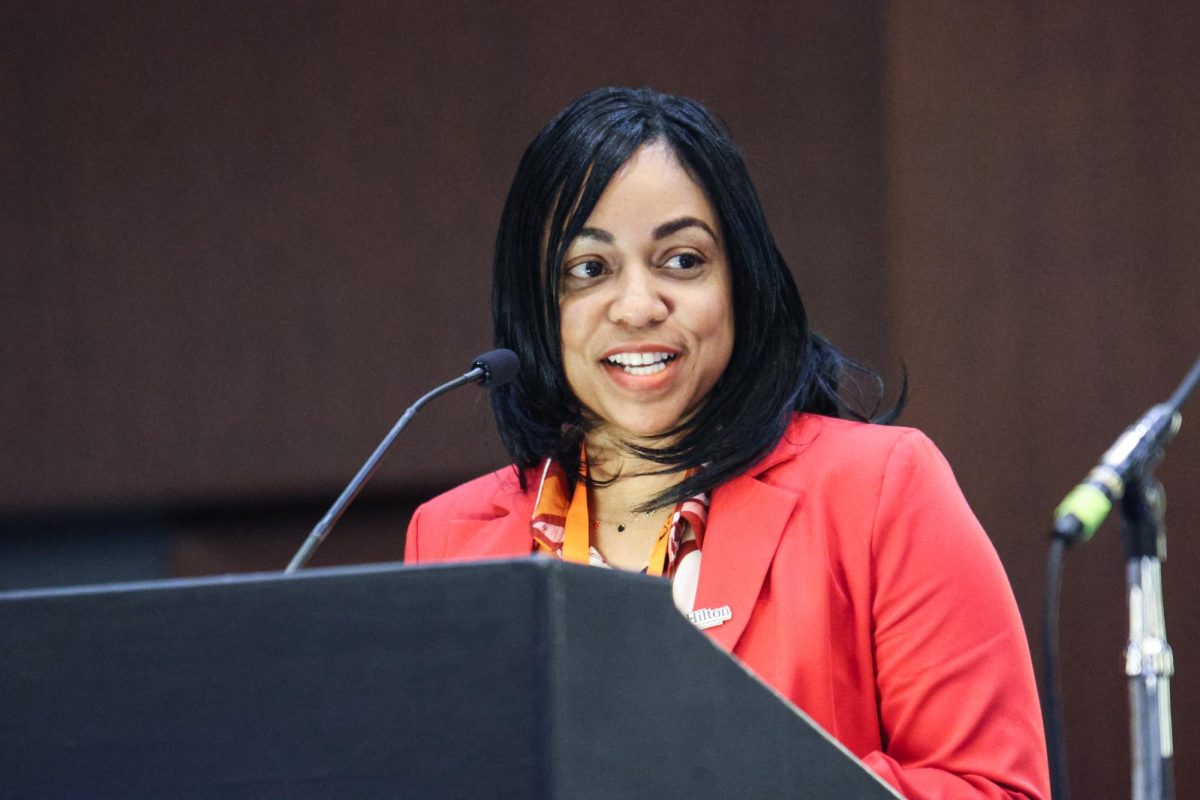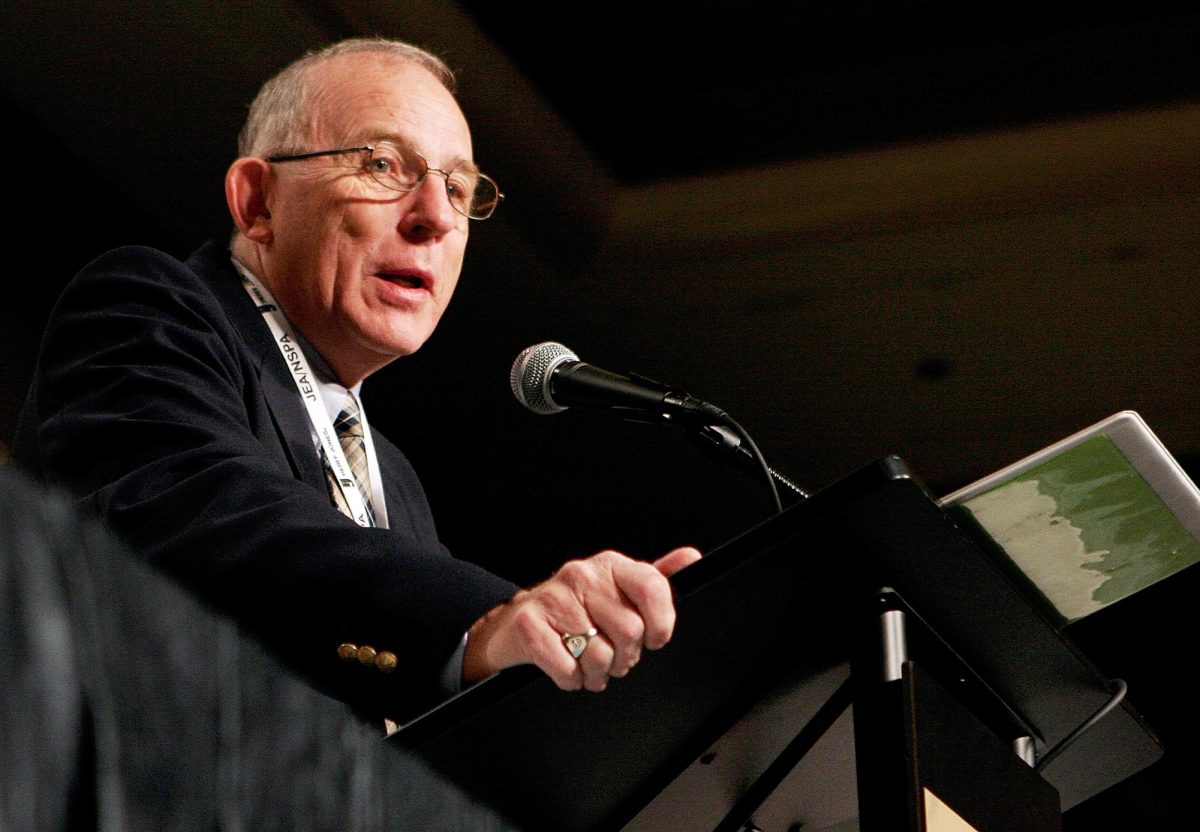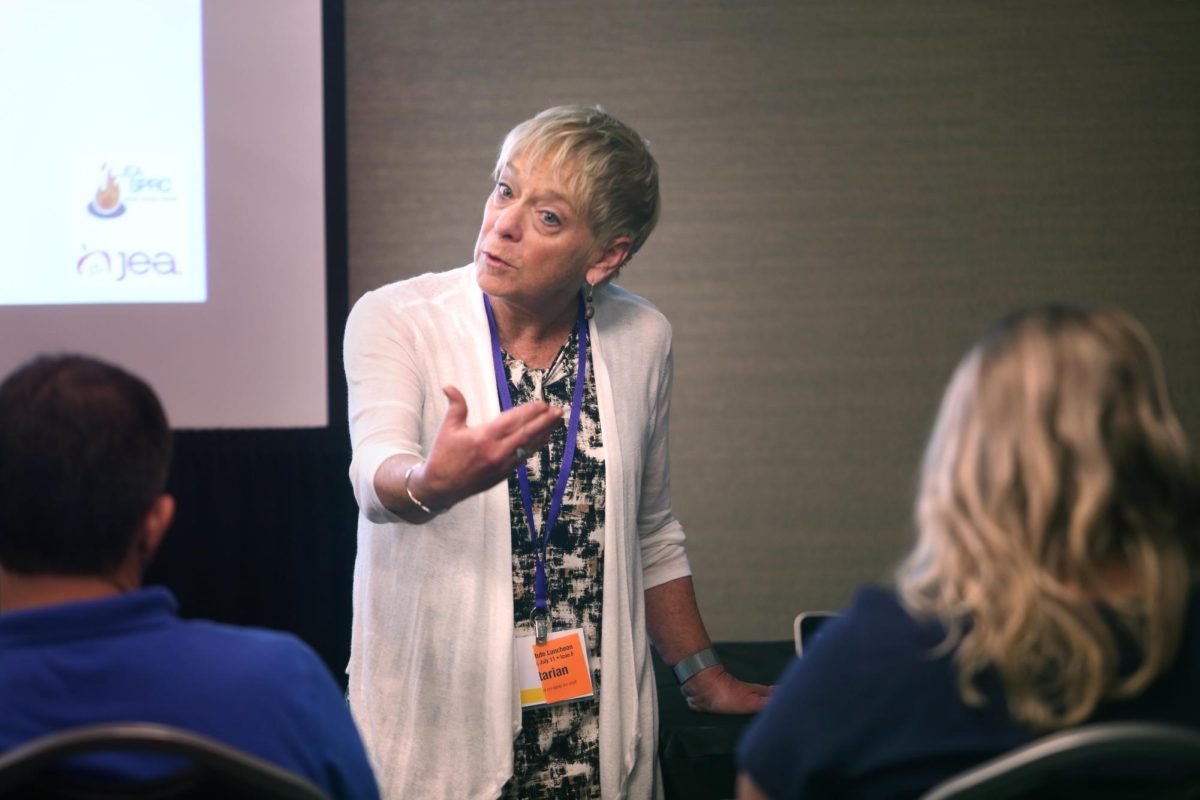She mentored teachers, board members, presidents and executive directors. She devoted her retirement to working for JEA and she was a force and a voice for student freedom of expression. For her efforts JEA presented her the Carl Towley Award in 1976, elected her president in 1983 and remembered her in Visions, a calendar publication for the 75th anniversary in 1999.
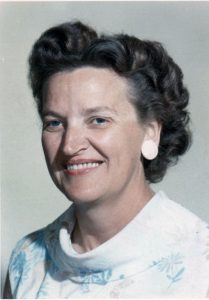
Ken Siver, JEA president (1987-1993), described her as a change agent rather than a placeholder and wrote this 1999 tribute in Visions.
The Greatest JEA President
by Kenson Siver
Dorothy could be described as a “late bloomer.” In 1955, 17 years after graduating from Lincoln High School in Tacoma, Washington, she entered Pacific Lutheran University as a freshman. Recently widowed with an 11-year-old daughter, she set her life on a new course. By 1958 she had completed her BA degree and was teaching journalism, speech, drama and English at Bethel Junior High School in nearby Spanaway.
Fast forward to September 22, 1994, the ballroom of Loews Vanderbilt Plaza Hotel in Nashville, Tennessee. The Freedom Forum, the world’s largest foundation dedicated to free press, free speech and free spirit, is hosting its Free Spirit Award honors banquet. Freedom Forum President & CEO Charles Overby is presiding. Dorothy McPhillips, in recognition of her drive to keep the voices of young journalists free, has been selected to receive the Free Spirit Award, the Freedom Forum’s highest honor recognizing “extraordinary achievement by individuals who embody the principles and values of free press, free speech, and free spirit. This honor places her in a select group which includes journalists Terry Anderson, Robert Maynard and Chuck Stone, Supreme Court justices William Brennan, and Thurgood Marshall, teacher Jaime Escalante, and Special Olympics founder Eunice Kennedy Shriver.
Rising to give her acceptance speech while fighting the spasms brought on by the advance of Parkinson’s disease, Dorothy recalls this as one of the most difficult moments of her life. It was one of those private moments in a very public setting. The audience was none the wiser. At the podium she graciously accepted the award, acknowledged those who had supported and assisted her and politely admonished, “If we are to expect the First Amendment to continue to serve our nation, we must recognize that it belongs to all of the people, including high school students. They will only appreciate the significance of a free press and free speech if they know the First Amendment belongs to them. A free and uncensored student press teaches all students, not just the student publications staff, about the rights and responsibilities that go with serving and preserving a free society.”
A move to southern California and membership in the Journalism Education Association in the mid-1960s had sealed her destiny. Dorothy realized the power of the student press as a teaching and learning tool and as a voice for youth. At Los Alamitos High School where she advised the yearbook and newspaper, Dorothy encouraged her students to responsibly write about their world and the issues of the day beyond the walls of the school. It wasn’t long before she had run-ins with the administration. Her students were writing about abortion, pollution, Vietnam, and the school’s curriculum. The topic her students covered that was most troublesome to the administration was its decision to abandon daily demand flexible scheduling for the traditional six-period day. Los Alamitos students had not been involved in the decision, learning of it when they began making course selections for the coming year. The newspaper, of course, covered the scheduling issue. Dorothy defended her students’ right to write—and would pay a price for that advocacy.
In the meantime, she assumed an active role in JEA as a member of the association’s Bookshelf Commission, Educational Research Commission and C:JET editorial board. Locally, she was vice president of Orange County JEA, served as JEA representative for Southern California and was a member of the advisory board for the Los Angeles Times Student Outlook project.
The Anaheim School District granted her request for a sabbatical leave for the 1970-71 term. She devoted her sabbatical to crisscrossing the country to visit schools with innovative curriculum and teaching methods and to participating in journalism workshops and JEA activities.
Dorothy returned to Anaheim in the fall of 1971 to find that she had been reassigned. Even though her students had won local, state, and national writing awards, she was not allowed to advise the school newspaper or teach the introductory journalism class. She was told she gave the students “ideas.” Her assignment for the year was to teach English.
She appealed the reassignment through the district’s grievance procedure and lost. It would be one of the few defeats Dorothy would encounter. Over time this experience made her even more determined to fight for journalism’s place in the curriculum and for students’ First Amendment rights. At the conclusion of the 1971-72 term, she resigned to take a position as a journalism and English teacher and newspaper adviser at Proviso East High School in suburban Chicago. A year later she returned to her native Washington to care for ailing relatives, taking a similar post in Longview at R. A. Long High School.
Although this was a turbulent period in her life, she continued her efforts on behalf of scholastic journalism, speaking at conferences, writing journal articles and serving as second vice president of JEA. In 1973, she was appointed to serve on the Robert F. Kennedy Commission on High School Journalism which produced the seminal book, Captive Voices: High School Journalism in America. Only one other teacher was asked to serve on the 22-member commission that reported on the problems facing the high school press.
In 1980, at age 60, Dorothy retired from teaching. Terming it an “early” retirement, Dorothy wanted to devote her time more fully to scholastic journalism. She left R. A. Long High School with an unexpected bang, but in true form. As her students were readying their final edition of the school newspaper Mount Saint Helens erupted, spewing ash for miles and disrupting life in the area. Longview was buried under several inches of debris and school was canceled. It should come as no surprise that a volcanic eruption was not about to keep their paper from going to press. Donning surgical masks when outside, Dorothy and her staff gathered at R. A. Long High School and put their paper to bed.
In retirement, free of the daily demands of teaching, Dorothy set up a JEA office in her home. Dorothy loved planning conventions and took great pleasure in seeing the students involved, thinking, reacting to speakers, winning contests and generally having a good time. As JEA immediate past president, she coordinated two national conventions annually until 1991.
In 1983, Dorothy ran for president of JEA. There were a few members who questioned whether a retired teacher could or should be leading the organization. They need not have been concerned. In her two terms (1983-87) Dorothy built the national profile of the organization. She developed critical alliances with American Society of Newspaper Editors, the Newspaper Association of America, the Freedom Forum, the Association for Education in Journalism & Mass Communication, the Southern Newspaper Publishers Association, the First Amendment Congress, and others. She helped organize a national scholastic journalism summit in New York City that brought a number of journalists and educators to the table to discuss high school journalism.
One of her most significant projects was to form a national commission on the Role of Journalism in Secondary Education. Dorothy secured funding for the commission from the Gannet Foundation, Dow Jones Newspaper Fund and the New York Times. The commission’s subsequent report, High School Journalism Confronts Critical Deadline, contained a study by the American College Testing Program (ACT) of a statistical analysis of the test scores of more than 19,000 college freshman. It showed students who had participated in yearbook or newspaper production had higher ACT composite scores than comparable students who had no publications experience. Additionally, students who had completed a high school journalism course ranked journalism over standard English courses in helping them develop language arts competencies.
Following the release of High School Journalism Confronts Critical Deadline, Dorothy worked tirelessly to promote the report and get copies of it into the hands of professional journalists and educators. In all, more than 5,000 copies were distributed. Issuing the report was not enough. She wrote and spoke on its findings and orchestrated discussions of its contents.
In the late 1980s Dorothy was diagnosed with Parkinson’s disease. She did not give in to this malady, but has adjusted her life to it. She remained active in JEA and Washington JEA, coordinating national conventions until 1992. Working for the Washington State Superintendent of Public Instruction, she also took on the assignment of developing a comprehensive, state approved journalism curriculum. And, at the request of the Freedom Forum, she helped lay the foundation for a new report on the state of high school journalism — one that would pick up where the landmark Captive Voices left off. Death by Cheeseburger: High School Journalism in the 1990s & Beyond was the result.
Over the years Dorothy’s efforts have been acknowledged by JEA (Medal of Merit, Carl Towley Award, Lifetime Achievement Award), National Scholastic Press Association (Pioneer Award), Columbia Scholastic Press Association (Certificate of Merit, Gold Key), Dow Jones Newspaper Fund (honorable mention – Adviser of the Year 1968 & top 14 advisers 1969 & 1970), Southern Interscholastic Press Association (Distinguished Adviser), Washington JEA (Dorothy McPhillips Service Award), Washington Press Women (Torchbearer Award), Western Washington Chapter of Society of Professional Journalists (Distinguished Service Award), Who’s Who in American Women, R. A. Long High School Teacher of the Year (twice), and others. And, she was invited to give key addresses to groups across the country including the Honors Lecture to the Secondary Education Division of AEJMC and the Phi Delta Kappa Conference on Press Freedom.
Dorothy McPhillips may be best described in the words of Freedom Forum Chairman Al Neuharth, who in his congratulatory remarks at the Free Spirit Awards Ceremony, said of Dorothy and the other honorees that they are people of “fearless expression, unselfish service, daring adventures. You are the heart and soul of our country. You are the ones who make our values and our social fabric more colorful, more meaningful, and more durable.”
Those who know her would add determined, tireless, and inspirational.


